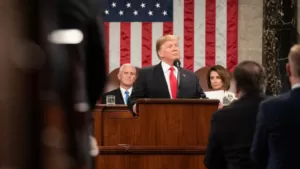Why Kamala Harris Won’t Ban Fracking

Kamala Harris’s stance on fracking has evolved, reflecting both political strategy and the complex energy needs of the United States. Here’s why she won’t ban fracking:
- Energy Transition and Economic Realities: Harris has acknowledged the necessity of fracking as part of an energy transition. While she initially supported a ban during her 2020 presidential campaign, her position has shifted to recognize the importance of diverse energy sources, including fossil fuels, to reduce reliance on foreign oil. This shift is pragmatic, considering the significant role fracking plays in U.S. energy production and job creation.
- Political Strategy: In key swing states like Pennsylvania, where fracking supports tens of thousands of jobs, Harris’s change in stance can be seen as a strategic move to appeal to voters in these critical regions. Her campaign and public statements emphasize increasing domestic oil production, which directly contradicts a ban on fracking.
- Legal and Practical Challenges: Implementing a ban on fracking would face substantial legal hurdles. Most fracking occurs on private land, meaning federal authority to ban it outright is limited. New legislation would be required, and given the economic implications, such a law is unlikely to pass through Congress.
- Economic Impact: Banning fracking could potentially lead to the loss of millions of jobs and significantly impact states like Pennsylvania, Ohio, and Texas, which rely heavily on fracking-related industries. Harris’s current policy reflects an understanding of these economic stakes, aiming to balance environmental concerns with economic stability.
- Public and Political Perception: Harris’s decision not to ban fracking also addresses the broader political narrative where energy policy is a significant voter issue. Her stance now aligns more with the Biden administration’s approach of not banning fracking but investing in clean energy while still supporting oil and gas production.
- Environmental Considerations with Pragmatism: While Harris and her campaign highlight investments in clean energy through legislation like the Inflation Reduction Act, they also acknowledge the current reality where fracking contributes to reducing greenhouse gas emissions by replacing coal with natural gas, which is seen as a transitional fuel.
- Debate and Public Statements: During debates and interviews, Harris has defended her position by pointing out her vote on the Inflation Reduction Act, which included provisions for fracking leases, illustrating her commitment to a balanced energy approach rather than an outright ban.
In summary, Kamala Harris’s decision not to ban fracking is influenced by a mix of economic realities, political strategy, legal constraints, and a pragmatic approach to environmental policy that seeks to balance immediate energy needs with long-term sustainability goals. This stance reflects a broader political trend where outright bans on established industries are less feasible due to their deep integration into the economic fabric of the country.







